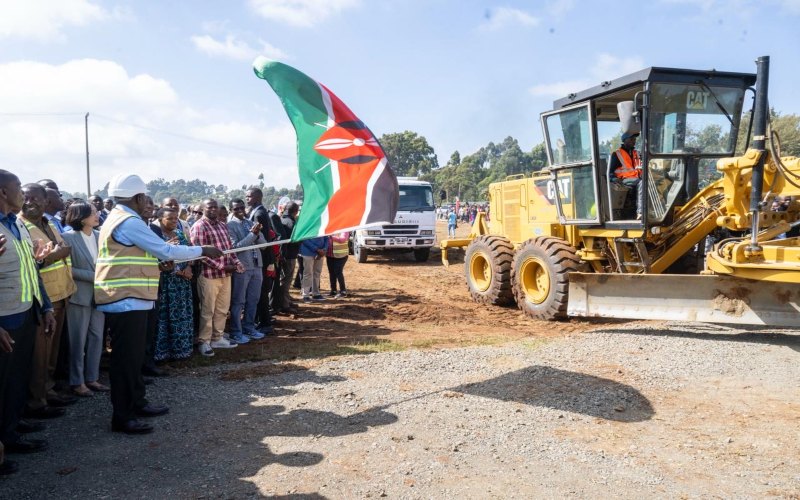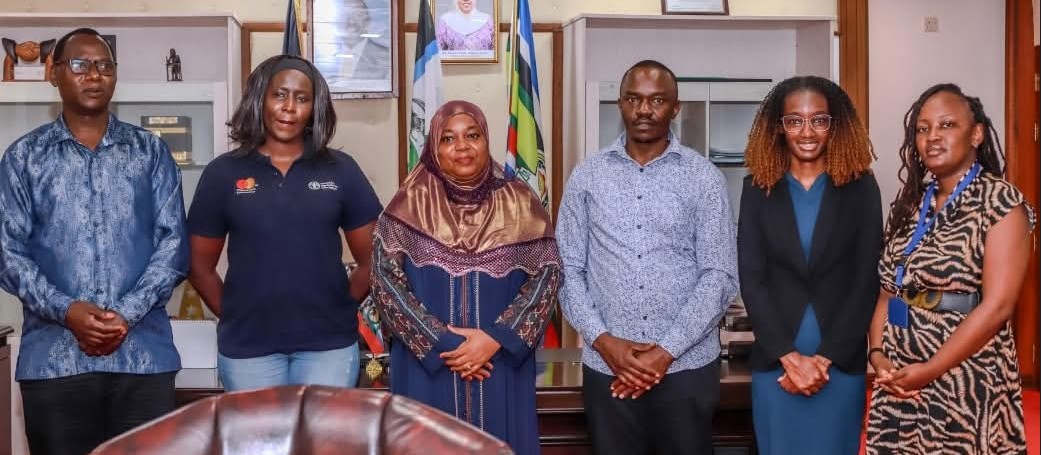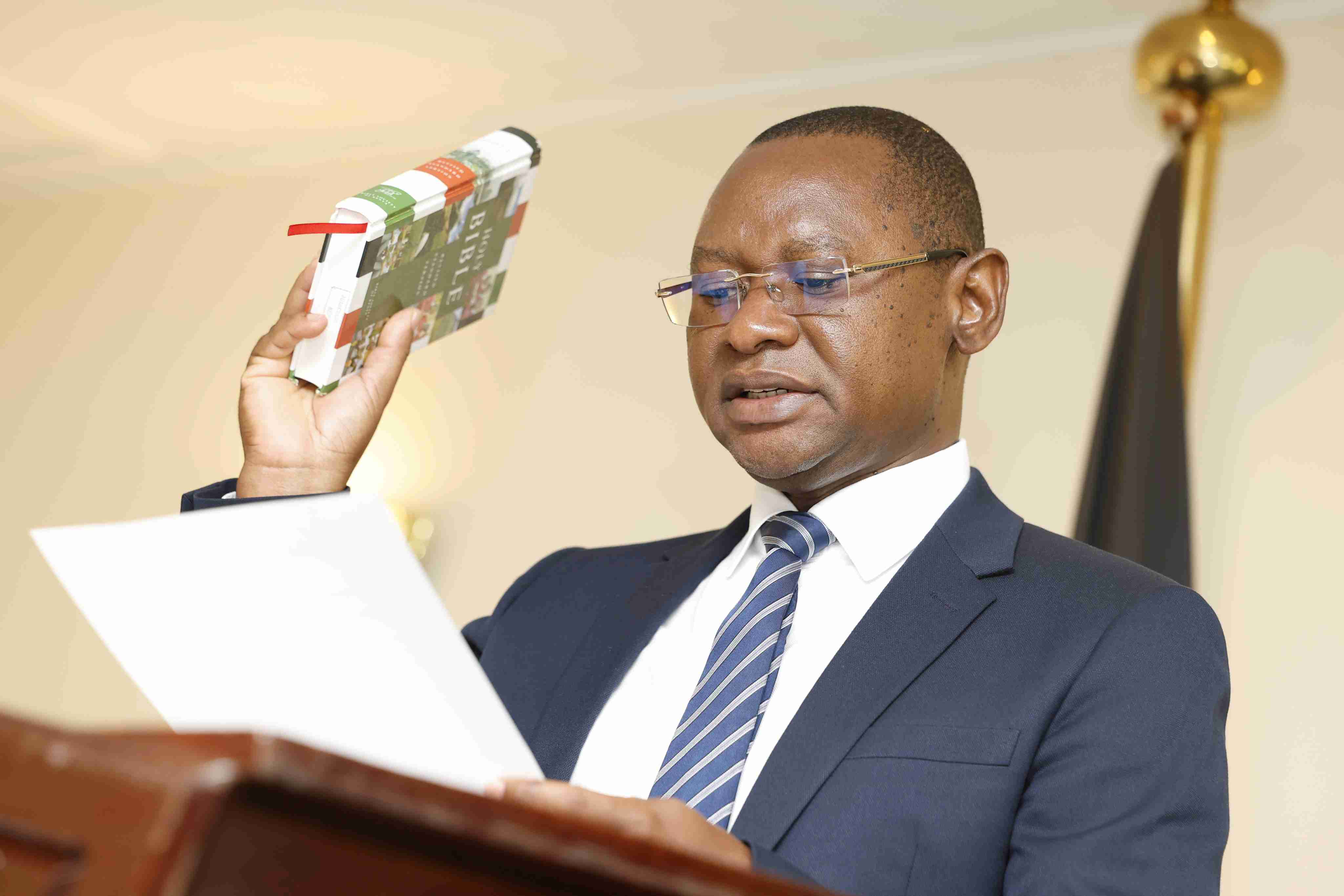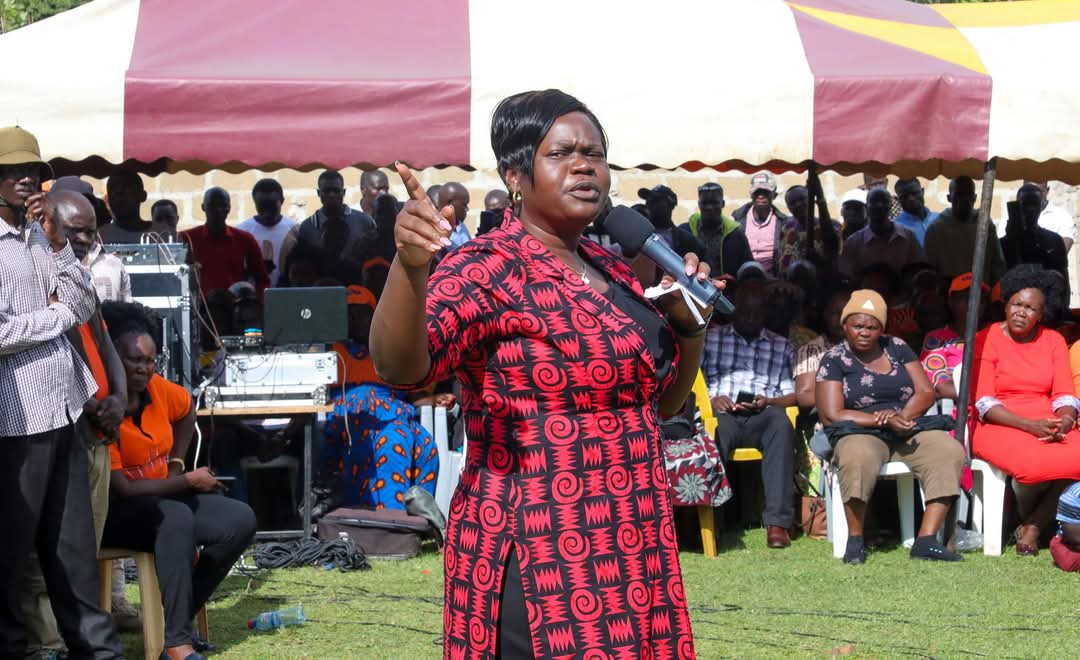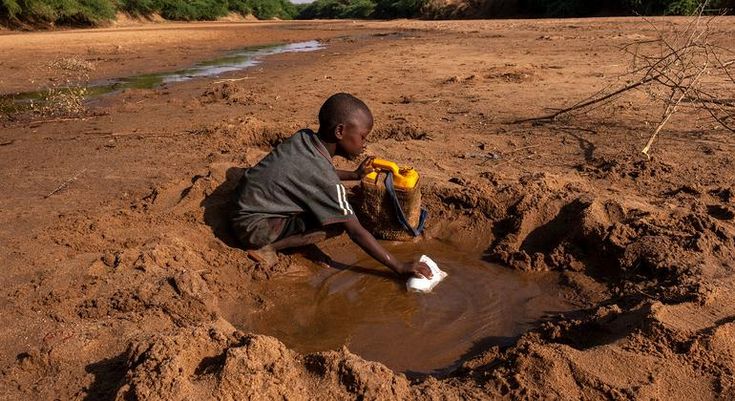Africa’s food security challenge: G20 calls for boost in trade and sustainable farming solutions
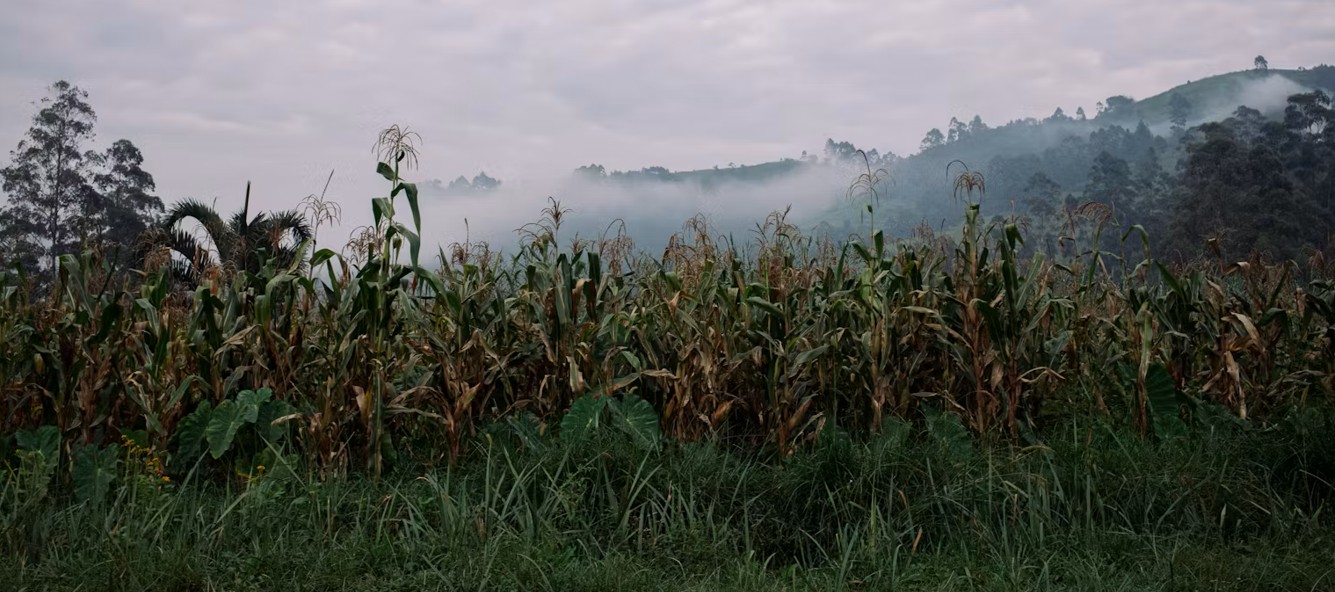
If we use high-yielding seed cultivars, fertilisers and agrochemicals to control diseases, we can then farm a relatively smaller area and rely on ample output.
Wandile Sihlobo, Stellenbosch University
More To Read
- Ruto unveils Sh400 billion mega dam plan to turn North and Coast regions into Kenya's new food basket
- CS Kagwe urges bold reforms in agriculture sector as Intergovernmental Agriculture Forum opens in Naivasha
- Ramaphosa hits back after Trump says South Africa won’t be invited to 2026 G20 summit
- Kenya wants China to remove tariffs on coffee, tea, avocados as trade imbalance persists
- International Rescue Committee warns millions at risk as drought intensifies across Northern Somalia
- Taita Taveta residents to receive fresh guidance on biotechnology amid rising misinformation
The Sustainable Food and Agricultural Systems work stream of the Business 20, a G20 engagement group, has endorsed three principles that it argues will contribute to the building of sustainable food systems and agriculture. The principles are increased trade, resilient supply chains, and sustainable agricultural practices.
Agricultural economist Wandile Sihlobo explains these three principles and how African countries can put them to good use.
What is global food security? How does it differ from food poverty?
Global food security is more comprehensive, seeking to address the challenges of access to food, nutrition, sustainability and affordability. The broad ambition of global food security is to ensure that countries, especially the G20 members, work collaboratively on initiatives that reduce global poverty levels. This reduction of poverty must be material at both the national and household levels.
Achieving this goal will demand that each country’s domestic agricultural policy enables increases in food production, prioritises environmentally friendly production approaches, and eases trade friction. This will enable countries that cannot produce enough food to import it, and most importantly, do so affordably. Also, countries should ease the global logistics friction, removing tariffs and ensuring that a flow of agricultural products is smooth. This also includes the removal of export bans in certain cases. For example, in 2023, India banned the exports of rice and that caused a surge in global food prices.
It is for this reason that I have championed the approach of “achieving food security through trade”. Such an approach is essential in an environment characterised by trade friction, which generally increases transaction costs for all. Ultimately, the goal of improving global food security seeks to improve the living standards for all, with the focus on the poor regions of the world, mainly Africa, the Middle East and Asia.
How can increased trade, resilient supply chains and sustainable agricultural practices enhance food security?
These interventions are at the heart of easing costs. If trade friction (tariffs, non-tariff barriers and export bans) are eased, we are able to lower the transaction costs of getting the goods from the production areas to the consumption points affordably.
Resilient supply chains also mean that food can be produced, processed and transferred to consumption points with less friction even in times of natural disasters and conflicts.
Sustainable agricultural practices are at the core of the food system. Still, this does not mean a move away from improved seed cultivars and genetics, and elimination of agro-chemicals and other inputs. It mainly refers to using them better.
I have noted a troubling trend of activism that seeks to eliminate agricultural inputs, a path that would lead to lower agricultural productivity and output, and eventually worsen hunger. The key should be safe and optimal use of these inputs.
In the recent farm protests in the European Union, the EU’s regulatory approach to sustainable farming practices was one of the issues farmers raised as a major risk. They cited the EU’s Green Deal, which aimed to accelerate the reduction of the use of inputs, such as pesticides, fertilisers and certain other chemicals, that are critical for increased production.
In my view, the G20 should guard against activist moves that are dangerous to global food security.
Other Topics To Read
What specific policies should countries, especially African nations, put in place to ensure the success of these principles?
South Africa and the African Union, which are both G20 members, should push for three broad interventions in agriculture to achieve the three G20 principles and boost food production that could benefit the African continent.
1. Climate-smart farming
First, there should be a strong call for sharing knowledge on climate-smart agricultural practices. These are new innovations and ways of farming that minimise the damage to crops caused by climate-related disasters like drought and heatwaves. This is important because Africa is very vulnerable to natural disasters.
For African agriculture to take off, governments must set up coordinated policies on how to respond to disasters. These responses must include everything African countries need to mitigate climate-related disasters, adapt to climate change, and recover quickly when disasters hit.
2. Trade reform
Second, Africa must push for a reform of the global trading system, and to improve food security in Africa through trade. South Africa already enjoys deeper access to agricultural trade with several G20 economies through lower tariffs and some tariff-free access.
It is in the interests of all G20 members to ensure open trade among the nations of the world. Open agricultural trade enables countries to buy and sell agricultural produce at lower prices. This is vital in the current environment where some nations are taking a more confrontational approach to trade.
African countries whose agriculture is less productive, with generally lower or poor crop yields, may not benefit as much in the short term from open trade. They will, however, benefit in the long run.
3. Improve access to fertilisers
Third, Africa should continue prioritising discussions about improving fertiliser manufacturing and trade. Sub-Saharan African countries have poor access to and usage of. Yet, greater fertiliser adoption is a key input to increased food production and therefore a reduction in food insecurity. Access to affordable finance is also a challenge for African agriculture.
Therefore, linking discussions on fertiliser with investments in network industries such as roads and ports is key. It is one thing to have fertilisers available, but moving them to areas of farming is difficult in some countries, and increases the costs for farmers. As part of this, the G20 should drive localised production.
Producing fertiliser on the continent would lessen the negative impact of global price shocks. It would also make it affordable for even the most vulnerable African countries to buy and distribute fertiliser.
Where do you suggest the balance is between more efficient agricultural production and reducing agriculture’s contribution to climate change?
We must use technology to adapt to climate change rather than demonising the use of agrochemicals and seed breeding, which certainly is a rising trend in some areas in South Africa. If we use high-yielding seed cultivars, fertilisers and agrochemicals to control diseases, we can then farm a relatively smaller area and rely on ample output.
But if we reduce these inputs substantially, we rely more on the expansion of the area we plant. Tilling more land means hurting the environment. The main focus should be on the optimal and safe use of agricultural inputs to increase food production. This is key to achieving global food security.
The Conversation
***
Wandile Sihlobo, Senior Fellow, Department of Agricultural Economics, Stellenbosch University
This article is republished from The Conversation under a Creative Commons license. Read the original article.
Top Stories Today
